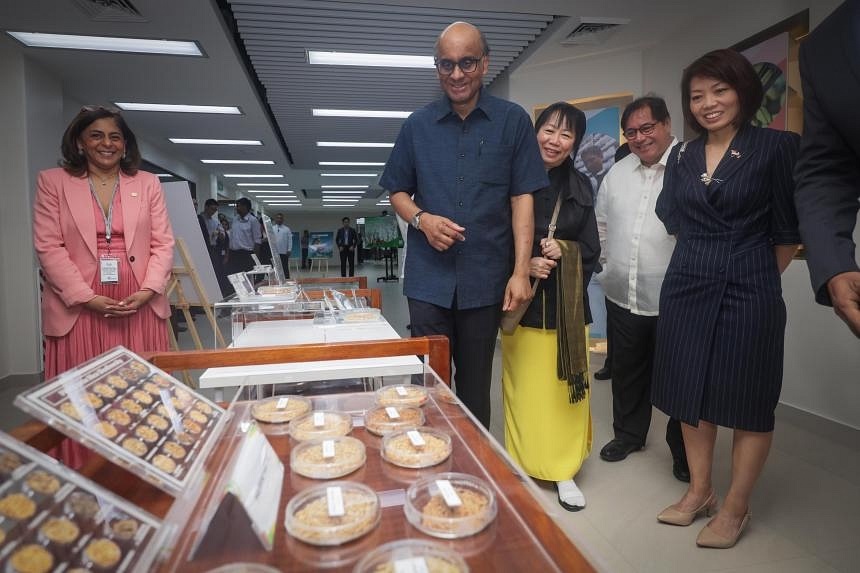
ANN/THE STRAITS TIMES – Singapore is looking to work with the Philippines to develop rice varieties that are more resistant to droughts and floods, and are also healthier to tackle a diabetes epidemic sweeping across Asia.
Speaking at the International Rice Research Institute (IRRI) at the end of his three-day state visit to the Philippines on Saturday, President Tharman Shanmugaratnam said the two countries are collaborating in a number of areas to protect biodiversity and sustainability. This includes rice cultivation, which is under serious threat from climate change.
Researchers have found that drought, heatwaves and saline intrusion from seawater moving into inland areas are threatening rice growers in Asia and Africa.
“It is the staple food for much of Asia and the world, but rice cultivation as we know it is seriously threatened,” said Tharman.
“And we need healthier varieties of rice with low glycaemic index (GI) scores to reverse a rising tide of diabetes, with higher protein to help tackle malnutrition among children in many developing countries,” he said, adding that Singapore’s Temasek Life Sciences Laboratory is partnering IRRI to develop new rice varieties to address these issues.
Researchers at the IRRI have had some success. Among other things, they were able to grow popular rice varieties with lower GI levels after identifying the genes that influence the GIs of the rice grains.
The institution has also developed high-protein rice. The bio-fortified rice variety can help supplement the intake of key nutrients.
“These are important areas of research and (IRRI) is very keen on collaborating with the Agency for Science, Technology and Research on the clinical validation of the healthcare benefits of this low glycaemic index rice, as well as high-protein rice,” he said.
“They’re keen to collaborate with Temasek’s Life Sciences Laboratory, and have also been working now for some years with the Lee Foundation, which has a rice scholarship programme to develop the next generation of rice scientists.”
While niche, he said that an area like this “has many implications, because rice is a staple for a large part of the world’s population”.




